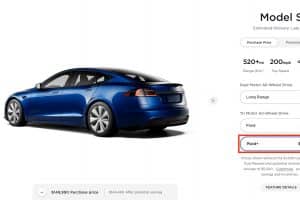Amazon has announced that it will purchase 20 electric semi-trucks from Volvo Trucks to be used in its German delivery network.
Volvo Trucks has been producing electric semis since 2019, and they are continuing to expand their sales by now selling 20 electric semi-trucks to Amazon for use in Germany. The Volvo FH electric semis will be used by Amazon to complete large domestic deliveries and are expected to travel over 1 million kilometers annually.
Amazon has high expectations for its new fleet of electric-semis. Each Volvo will be expected to travel 500 kilometers daily, nearly double the Volvo FH’s 300-kilometer range. Furthermore, they will replace diesel tracks and be expected to perform well in the same role. Spokesmen from Amazon and Volvo are optimistic and see the new fleet as critical to Amazon’s efforts to decarbonize their transport system.
“Big actors in the transport business play a key role in leading the industry’s efforts to lower its carbon footprint. Therefore I’m glad that Amazon is working with us to help reduce their emissions in longer and heavier transport assignments,” says Jessica Sandström, Senior Vice President of Product Management at Volvo Trucks.
Andreas Marschner, Vice President of Transportation Services Europe at Amazon, concurs; “…welcoming these electric heavy goods vehicles from Volvo into our fleet is such a critical milestone. We’re operating one of the fastest-growing commercial transportation electrification programs, and we’ll continue to invest and innovate to decarbonize and deliver packages to customers with zero emissions.”
Amazon did not clarify how many electric trucks they would buy in the future to continue their decarbonization efforts. However, looking at Amazon’s “Goals and Progress” site, they have set aggressive sustainability goals, aiming to power their operations with 100% renewables by 2025 and, more critically, working to make 50% of Amazon deliveries carbon neutral by 2030.
Volvo Trucks’ press release shows that domestic, commercial transport creates 36% of Germany’s overall carbon footprint. Hence, any work to reduce the country’s dependence on ICE vehicles could dramatically reduce carbon emissions.





